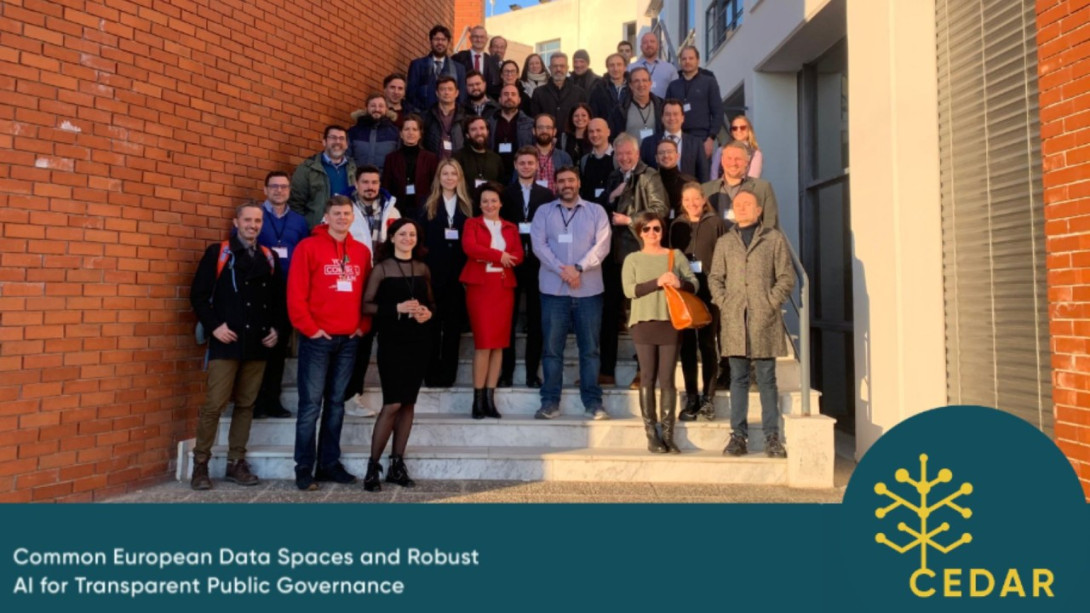
A team of nine top research institutions and universities, twelve technology and business developing companies, seven public sector end users, and three relevant NGOs is launching CEDAR, an initiative to promote more transparent and accountable public governance in Europe. By sharing high-quality datasets, developing secure connectors for European data repositories, and employing innovative technologies for efficient big data management and analysis, CEDAR aims to promote better evidence-based decision-making, combat corruption, and reduce fraud in public administration.
“The CEDAR project is an ambitious effort and a great opportunity to accelerate the digital transformation of audit mechanisms against the embezzlement of public funds and corruption. The Common European Data Spaces should be at the center of this endeavor.” - Dr. Petros Daras (Coordinator)
CEDAR will identify, collect, fuse, harmonise, protect, and share 10+ new high-quality datasets. This will involve digitising data from public administration archives and generating synthetic data to improve real-world data quality. The project also aims to harmonise and standardise different public and private data sources into new unified datasets. Furthermore, CEDAR seeks to enable fair and secure data access to these datasets and integrate them with 6+ Common European Data Spaces already existing in Europe.
This 36-month project will also focus on building and improving innovative data management and machine learning operations such as DataOps and MLOps. These operations are vital for ensuring effective, scalable, automated, and trustworthy data spaces, especially in the context of transparent public governance. CEDAR recognizes the deficiency of software and infrastructures for effective data management in public administration and aims to address this by adopting common architectures, standards, and technologies that ensure interoperability, reusability, portability, security, and privacy in data management and machine learning.
CEDAR will develop methods, tools, and guidelines to digitise, protect, and integrate data to address significant issues like corruption, aligning with the European Strategy for Data and the development of Common European Data Spaces (CEDS), and the European Data Act. This will lead to improved transparency and accountability in public governance, promoting European values and rights in the digital world, and enriching the European data ecosystem and economy.
Finally, CEDAR will test and promote its results with relevant public and private stakeholders, generating positive, tangible impacts on the European economy, society, and environment. It will validate the results in different pilots across three European countries, focusing on areas such as monitoring national RRP (Recovery and Resilience Plan) funds in Italy, transparent management of Slovenian public healthcare funds, and transparent management of foreign aid for rebuilding Ukraine.